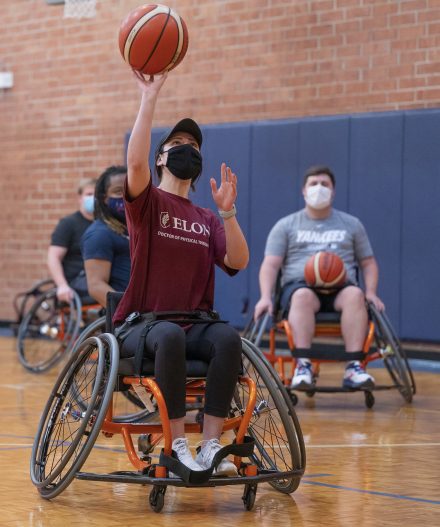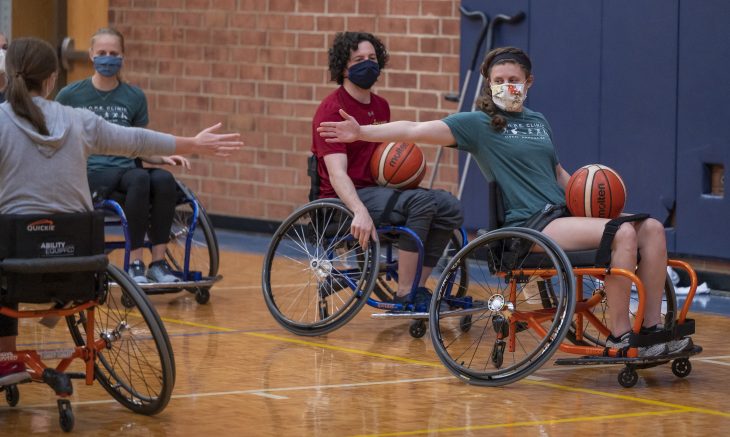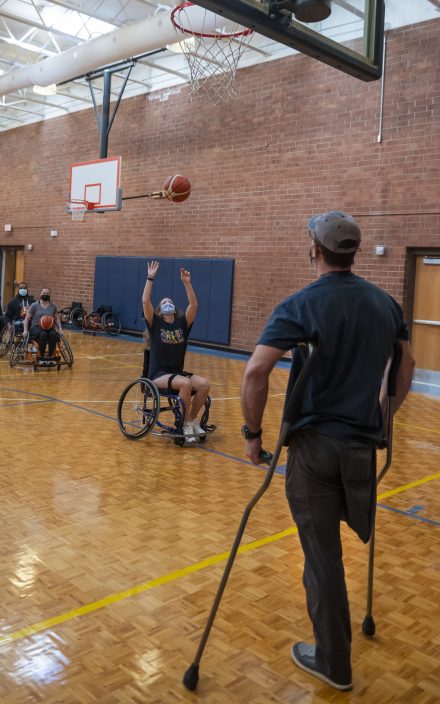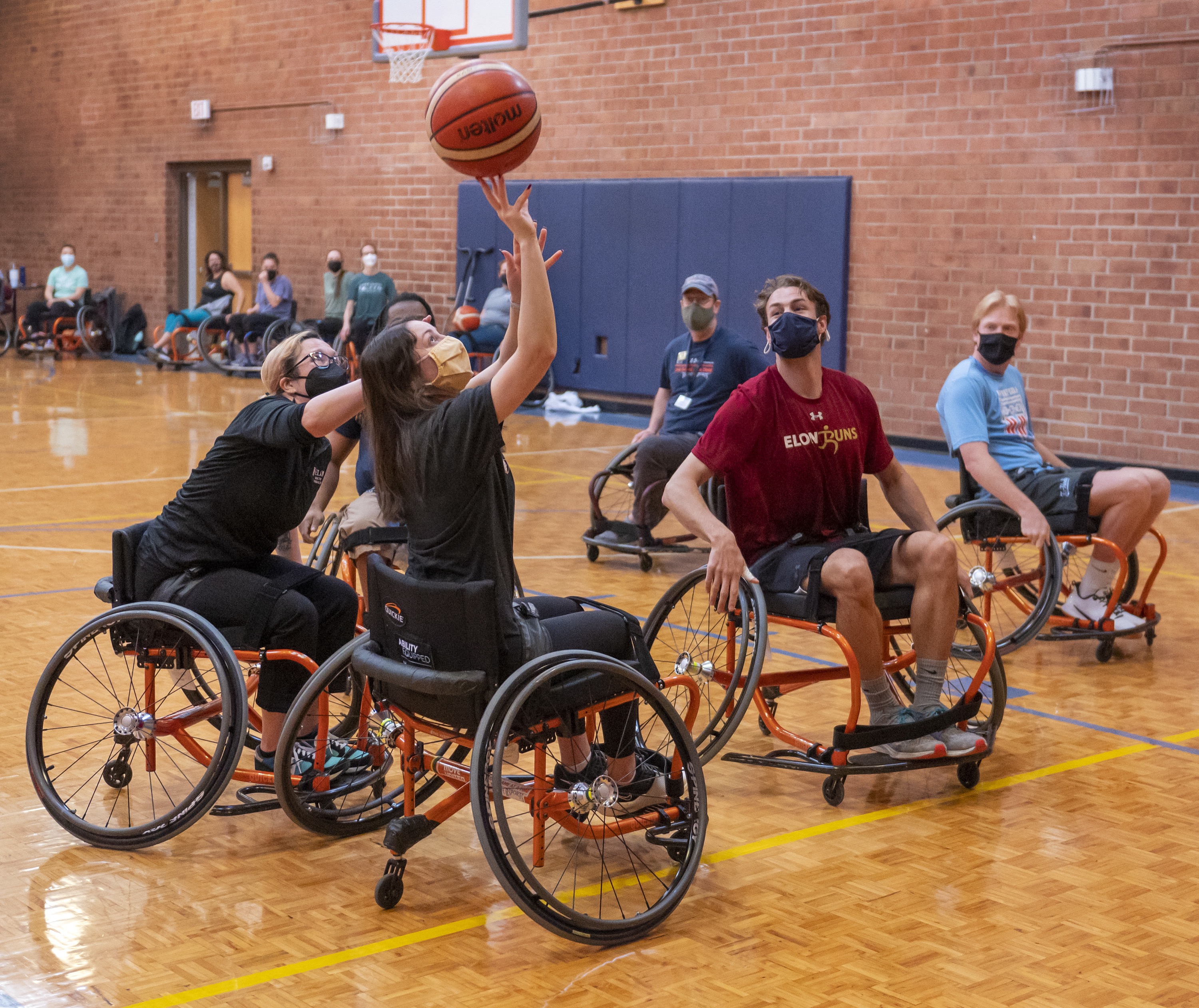Students in Elon Doctor of Physical Therapy program recently participated in a session with BridgeIISports that allowed them to experience participating in adapted sports.
Elon University’s Department of Physical Therapy partnered with BridgeIISports, a nonprofit North Carolina adapted sports company, to teach the Doctor of Physical Therapy students how to play wheelchair basketball.

BridgeIISports, pronounced Bridge to Sports, is a company that provides opportunities for individuals with physical disabilities to participate in multiple adapted sports including wheelchair basketball, archery, boccia, cycling and kayaking.
Wheelchair basketball is a competitive sport played at the Paralympics and played locally by children and adults who are unable to competitively play basketball with their able-bodied peers. It is an intense and athletic sport that demands enough coordination to dribble while pushing a sports wheelchair.
“It is important for physical therapists to support our clients in functional activity and play,” said Assistant Professor of Physical Therapy Education Melissa Scales, who helped organize the event. “For children and adults with physical disabilities, giving them the ability to be an athlete is not only important for health and wellness as it pertains to the physical body, but sports provides an opportunity for leadership and self-advocacy.”

Scales explained that the physical therapy students are learning about how to support and enhance the health and wellness of their future clients and also developing empathy and understanding of the requirements of participating in a rigorous sport such as wheelchair basketball.

The ability to engage in the sport with community members who are leaders in adapted sports also provides them with opportunities to learn from individuals with physical disabilities, she said.
Scales hopes that her students think about recommending adapted sports to their future clients, take care of the sports injuries that might come from this population of athletes, and that more people watch and support the Paralympic Team USA with opened eyes to the athleticism and skill.



